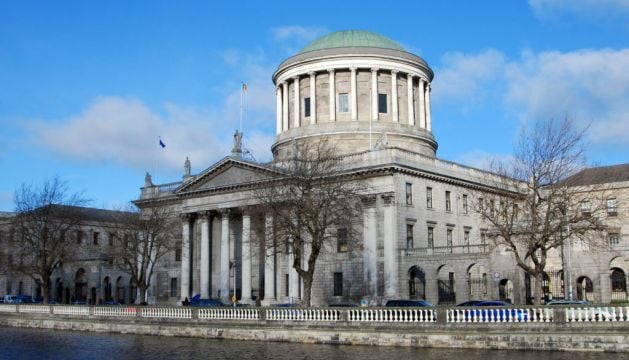A North Dublin residents’ association has been given permission to take its second-High Court challenge over An Bord Pleanála’s granting of a fast-track planning permission for a large apartment scheme in Baldoyle.
Abbey Park and District Residents Association Baldoyle issued proceedings late last year over 882 units at local lands formerly known as “The Coast”. Its more recent challenge is over the November 2021 approval of a further 1,221 residential units at the same location, northwest of Baldoyle village.
Both Strategic Infrastructure Development schemes are being developed by The Shoreline Partnership, which is a notice party in the proceedings. The association’s 2022 challenge is against An Bord Pleanála, Ireland, the Attorney General and Fingal County Council.
In a sworn statement, the association’s secretary, local resident John Oliver McCann, said the group is not opposed to responsible development of the site, but it is concerned these plans represent “significant over-development of the site with serious environmental and planning implications for the surrounding area”.
The residents’ association, represented by John Kenny BL instructed by Eoin Brady of FP Logue Solicitors, says the decision to grant permission is invalid on several grounds relating to domestic and European law.
It is claimed the planning board’s permission for the €466 million scheme, which comprises 11 apartment blocks, one of which reaches 15 storeys, was in material contravention of the local area plan in relation to preferred residential densities.
The units are to be made up of 502 one-bed apartments, 636 two-bedroom apartments, 82 three-bed apartments and one studio.
It is also claimed that the board failed to adequately consider the cumulative effects of this development and its neighbouring 882-unit project on the environment for the purposes of the Planning and Development Act 2000.
Enviornmental concerns
The group claims that no consideration was given to the impacts of the carbon emitted during the manufacturing of the building materials, the transportation of materials to the site and the construction phase of the proposed development.
The challenger says the board was “obliged to assess the direct and indirect effects of the proposed development”.
The decision is further invalidated, it is claimed, due to the board’s alleged failure to direct that An Taisce - The National Trust for Ireland be consulted on the proposed build.

The group also points to European Union law requirements, claiming the board should not have excluded the possibility of significant impacts on birds and of the potential off-site impacts on the Baldoyle Estuary Special Protection Areas.
Other grounds of challenge include that the decision contravenes the EU’s Strategic Environmental Assessment and Water Framework directives.
The group also submits that the board is precluded from granting permission for a development that has a hydrological link to the Baldoyle Bay, which is classed as a Special Area of Conservation, without being satisfied it will not jeopardise the good status of the water body.
Mr Justice Richard Humphreys granted leave for the applicant to bring its case and adjourned the matter to a later date.







